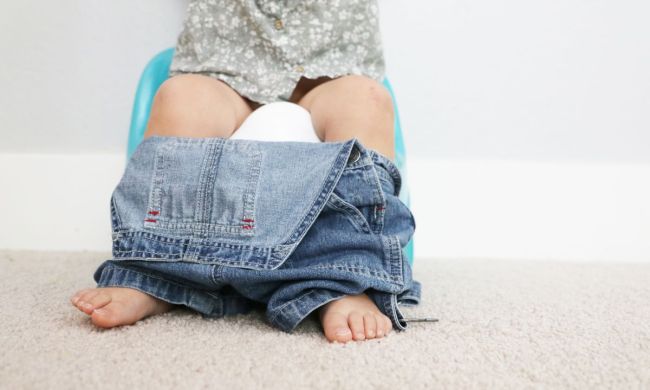Between 10 and 20 percent of two-year-olds are behind with speech, but what causes speech delays in toddlers? There are many different causes, and your first step should always be asking your child’s pediatrician about any of your concerns. If you do suspect that your toddler has a speech delay, don’t panic and assume there is some serious problem.
Your child’s doctor will be able to diagnose what’s really going on. In the meantime, if you’re doing your own research while you wait for your appointment, here are six common causes of toddler speech delays.

What causes speech delays in toddlers?
A speech delay can be caused by many different reasons. Finding out the cause is important to figure out how to treat it. Some causes are physical, some are intellectual, some are neurological, and so on. Here are some of the main causes:
Kids are on their own timeline
Some kids just meet milestones at their own pace and that’s OK. Not every speech delay is caused by a disorder that needs treatment. Sometimes kids will catch up on their own and will just focus on physical or emotional development instead of verbal development for a bit.
Babies born prematurely understandably may take a bit longer with many developmental milestones, and speech is no different. Premature birth can sometimes cause developmental delays, and the treatment is often patience and time.
Tongue-tie
The small bit of skin that connects the bottom of the tongue to the bottom of the mouth is sometimes too tight causing difficulty with moving the tongue like it should be able to. It’s a condition that kids are born with called ankyloglossia, better known as a tongue-tie. A simple procedure can cut this skin so the tongue is free to move as it needs to for proper speech and eating.
Tongue ties are often caught in infancy because they can cause difficulty with a breastfeeding latch or, less often, with drinking from a bottle. If they aren’t corrected in infancy, they can cause trouble with speech and eating later on. Your pediatrician can refer you to an ENT doctor for this diagnosis and corrective procedure.
Childhood apraxia of speech
One physical disorder that can cause a speech delay is childhood apraxia of speech (CAS). This disorder doesn’t affect language comprehension or nonverbal communication, but it makes it hard for the child to form sounds in the right order to make words. They’ll know what to say but can’t get it out because their brain isn’t sending the right signals to the mouth.
For this diagnosis and treatment, you would see a speech-language pathologist. This isn’t a disorder children outgrow without treatment, sometimes as many as therapy sessions five days a week.

Hearing issues
If you can’t hear language, you’ll have trouble verbalizing it. Have your child’s hearing tested if you are unsure of the cause of their speech delay. Sometimes the hearing loss is so subtle that a speech delay is the only sign.
Ear infections, especially chronic ones, can cause hearing issues that can lead to speech delay. Talk to your child’s pediatrician about treatment for frequent ear infections if that’s an issue for your child.
Autism spectrum disorder
Speech and language issues are a common sign of autism. Other language-related signs include speech regression, difficulty with nonverbal communication in addition to verbal communication, and repeating phrases. Talk to your pediatrician if you think you’re seeing other signs of autism in your child like avoiding eye contact, not showing facial expressions, not looking where you point, not showing much interest in other kids, constant repetition, flapping hands, rocking body, hyperactivity, and others. These signs have usually appeared in a child by their second birthday.
Neurological or intellectual issues
There are many different disorders from cerebral palsy to muscular dystrophy that can cause speech delay in toddlers. While you would likely already have a diagnosis for some, there are others that your pediatrician may want to look into. Speech delays can also be one of many delays across the board in a child with an intellectual disability.
The bottom line
Finding the cause of the speech delay is the only way to improve speech since the treatments vary so greatly depending on the reason for the delay. Treatment may look like surgery to put in ear tubes, physical therapy, speech therapy, clipping a tongue-tie, or something else. Sometimes, the cause is not a concerning issue and you just need to wait for your child to catch up in their own time. Whatever the reason, involve your pediatrician along the way for guidance.



